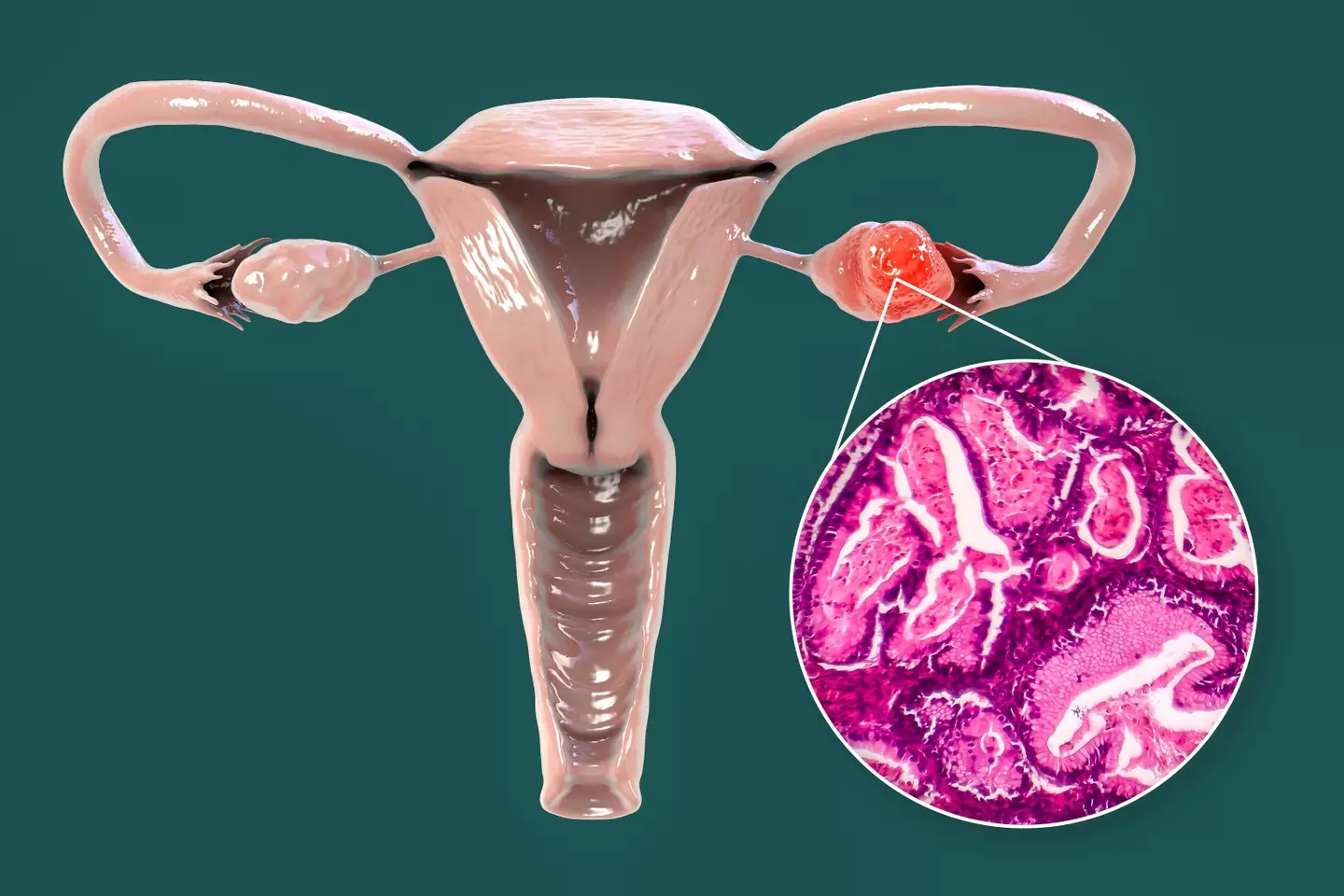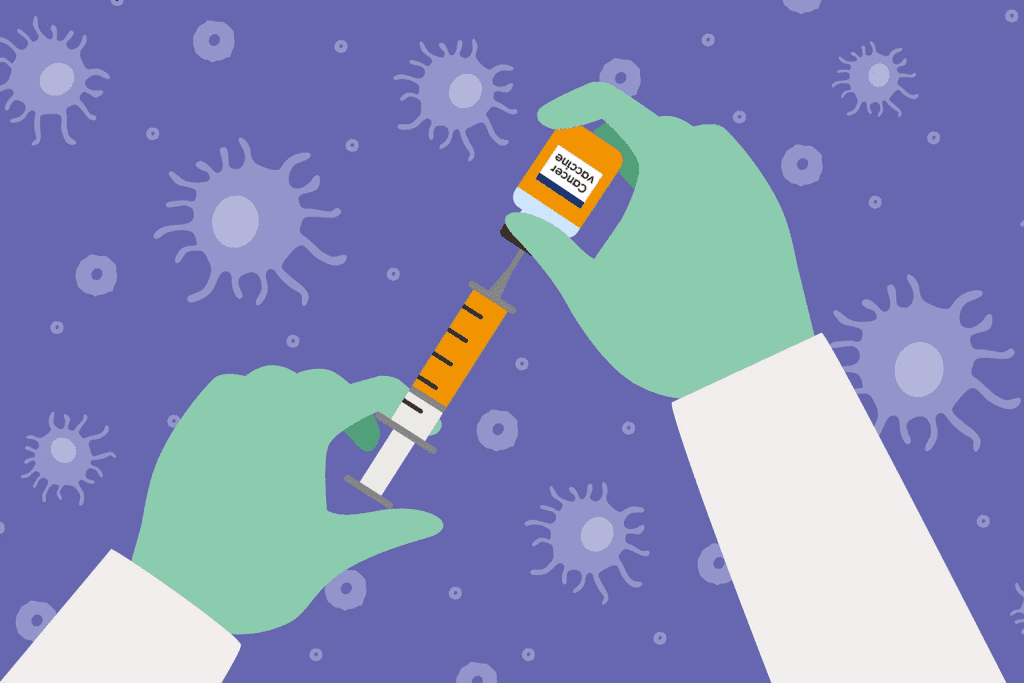Imagine a world where ovarian cancer is a thing of the past. Thanks to groundbreaking research at the University of Oxford, this dream could become a reality. Scientists are developing the world’s first ovarian cancer vaccine, known as OvarianVax, which has the potential to wipe out the disease entirely. This revolutionary vaccine aims to harness the immune system to detect and destroy cancer cells in their earliest stages, offering hope to countless women and families worldwide.
Let’s delve into the details of this groundbreaking innovation, its potential impact, and what it means for the future of cancer prevention.

Ovarian cancer impacts thousands in the US (Getty Stock Photo)
The Rising Need for an Ovarian Cancer Vaccine
Ovarian cancer remains one of the deadliest gynecological cancers, largely because it is often detected in its advanced stages. According to the National Cancer Institute, an estimated 238,484 women in the United States alone were living with ovarian cancer in 2021. Early detection can be challenging, and treatment options are limited, leaving many patients with a poor prognosis. Given these statistics, the need for a vaccine is urgent.
This is where OvarianVax comes into play. By equipping the immune system to recognize and attack ovarian cancer cells before they can proliferate, the vaccine could transform cancer prevention. The scientists behind this pioneering project hope to emulate the success of the HPV vaccine, which has dramatically reduced cervical cancer rates worldwide.
How OvarianVax Works: A New Approach to Cancer Prevention
OvarianVax takes a proactive approach by training the body’s immune system to identify ovarian cancer cells early on. Lead researcher Professor Ahmed Ahmed explains that this is a complex task, as ovarian cancer often flies under the radar in its initial stages. However, with advanced technology, researchers now have the tools to make this possible.
1. Teaching the Immune System to Recognize Cancer
The primary challenge in developing OvarianVax lies in helping the immune system detect the subtle signs of ovarian cancer. This vaccine is designed to stimulate an immune response by exposing the body to specific proteins found on the surface of early-stage ovarian cancer cells. By doing so, it “teaches” the immune system to attack these cells as soon as they appear, potentially stopping the disease before it starts.
2. Using Organoids to Test Effectiveness
To test the vaccine’s effectiveness, researchers are utilizing organoids, which are mini-models of ovarian cancer grown in the lab. These organoids mimic the structure and behavior of actual cancer cells, providing a realistic environment for testing. Through this innovative technique, scientists can observe how well the vaccine prompts the immune system to target and eliminate cancer cells.
3. Reducing High-Risk Cases
OvarianVax could be particularly beneficial for women with a family history of ovarian cancer or those carrying certain genetic mutations. By administering the vaccine to high-risk individuals, it may prevent the disease from developing, offering a new level of protection that wasn’t available before.

Scientist are working on the vaccine (Getty Stock Photo)
A Step Forward in Cancer Research with Cancer Research UK’s Support
This project is backed by Cancer Research UK, a leading organization committed to funding and advancing cancer research. Michelle Mitchell, CEO of Cancer Research UK, emphasizes that projects like OvarianVax represent an exciting future in cancer prevention. By focusing on early detection and prevention, Cancer Research UK hopes to make ovarian cancer a preventable disease.
Cancer Research UK’s support enables the team to explore which proteins the immune system recognizes most effectively on cancer cells. This research is critical, as it lays the foundation for OvarianVax’s development and success. The organization’s investment in such projects demonstrates its commitment to innovation and improving survival rates for women diagnosed with ovarian cancer.
The Potential Impact of OvarianVax: Hope for the Future
The implications of a successful ovarian cancer vaccine are monumental. If OvarianVax can deliver on its promise, it could redefine cancer prevention and save countless lives. Here are a few potential benefits of this revolutionary vaccine:

1. A Reduction in Ovarian Cancer Incidence
Just as the HPV vaccine significantly lowered cervical cancer rates, OvarianVax has the potential to do the same for ovarian cancer. By preventing cancer at its very first stage, the vaccine could drastically reduce the number of new cases, alleviating the burden on patients, families, and healthcare systems.
2. Increased Survival Rates
Ovarian cancer is often deadly because it goes undetected until it has progressed. By preventing the disease altogether, OvarianVax could save lives and improve survival rates. Women who might otherwise face late-stage diagnoses would be able to avoid the trauma of cancer treatment entirely.
3. A New Era of Cancer Prevention
The development of OvarianVax signals a broader shift in cancer treatment strategies—from reactive treatment to proactive prevention. This new era emphasizes building a defense within the body, empowering the immune system to act as the first line of defense against cancer. If successful, OvarianVax could pave the way for vaccines targeting other cancers, furthering progress in cancer prevention on multiple fronts.
Challenges and Future Prospects: The Road Ahead for OvarianVax
While the promise of OvarianVax is exciting, there are challenges that researchers face before the vaccine can be widely available. Professor Ahmed stresses that it may take years of testing and clinical trials to fully understand the vaccine’s efficacy and safety. However, the team remains optimistic, and there’s a growing sense of hope within the scientific community.

1. Clinical Trials and Regulatory Approval
The next step for OvarianVax is to undergo rigorous clinical trials. These trials will assess the vaccine’s effectiveness in a controlled environment and monitor for any potential side effects. Passing these trials is essential for obtaining regulatory approval, a process that may take several years but is crucial for ensuring the vaccine’s safety.
2. Managing Expectations
While the development of OvarianVax is undoubtedly a milestone, experts caution that it’s still in its early stages. Michelle Mitchell and Professor Ahmed both acknowledge that while the vaccine holds incredible potential, it will take time to perfect. Nevertheless, the research conducted now lays the groundwork for future cancer vaccines, creating a ripple effect in the field of oncology.
Conclusion: A Bright Future for Cancer Prevention
The world’s first ovarian cancer vaccine, OvarianVax, marks an extraordinary advancement in cancer prevention. By teaching the immune system to recognize and combat ovarian cancer cells at their inception, this vaccine could save lives and change the way we approach cancer treatment. While it may take years for OvarianVax to reach the public, its development is a beacon of hope for a future where ovarian cancer—and perhaps other cancers—can be eradicated.
As we look ahead, projects like OvarianVax remind us of the power of scientific innovation and the importance of preventive medicine. With continued support from organizations like Cancer Research UK and the dedication of researchers, the dream of a world free from ovarian cancer could soon become a reality.


